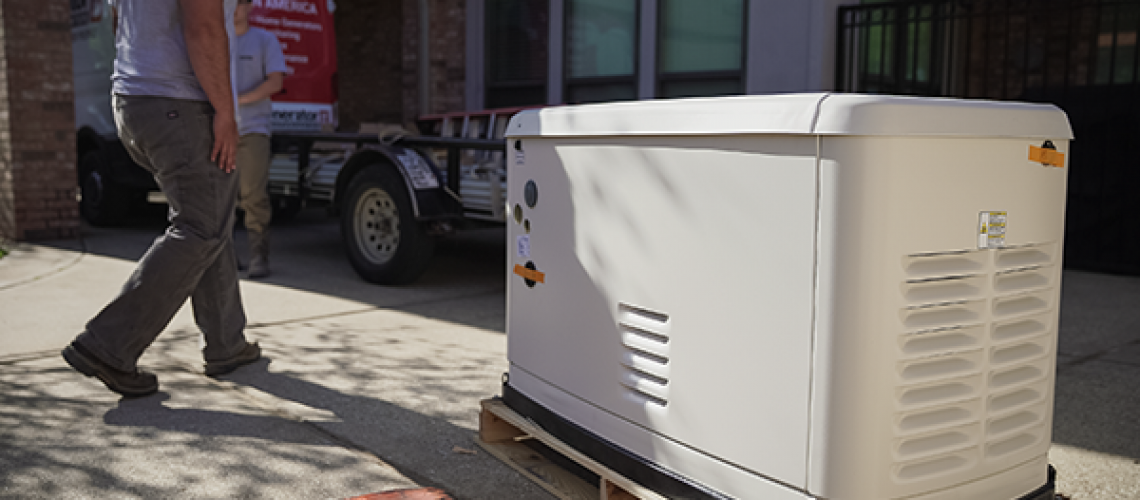Power outages in Lake Country, WI, can happen due to unpredictable weather or grid issues, leaving you without light, refrigeration, or even the power needed for essential medical devices. Investing in a whole-house generator helps protect your household, providing uninterrupted power during emergencies. Here’s a guide to help you understand what’s involved in choosing and installing a home generator.
Choosing the Right Generator Capacity
Selecting the correct generator capacity is crucial for reliable backup power. Start by estimating the total wattage required to keep your essential appliances running. Check the manuals for each device in your home, noting the wattage and adding them together to determine your total power needs.
For instance:
- Up to 2,000 watts: Powers your fridge, freezer, TV, and a few lamps.
- 7,000+ watts: Covers larger appliances like your central AC, water heater, sump pump, furnace, and more.
To choose the right capacity, consider both your day-to-day essentials and the extra items you might need during an extended power outage in Lake Country’s varying weather conditions.
Selecting the Best Fuel Type
The type of fuel for your generator affects both operational costs and availability. Here are some fuel options to consider for your generator in Lake Country:
- Natural Gas: Cost-effective and readily available through existing lines, ideal for long-term use.
- Propane: Eco-friendly with an indefinite shelf life, a reliable option for those prioritizing sustainability.
- Diesel: High-energy fuel that doesn’t require spark plugs, but might need an additional tank.
- Gasoline: Common for portable generators, though less common for whole-house options.
Natural gas is typically recommended for whole-house generators in Lake Country, especially with easy access to local suppliers.
Additional Considerations for Choosing a Generator
When selecting a generator, you’ll also need to think about a few other elements related to installation in Wisconsin:
- Electrical Needs: Standby generators require a transfer switch that detects outages and automatically supplies power to critical circuits. This setup might impact installation costs, but ensures smooth power transitions during outages.
- Plumbing Requirements: Using natural gas or propane will require plumbing adjustments. While natural gas can usually connect to an existing line, propane setups may need dedicated piping from a certified plumber.
- Permits: Lake Country may require permits for both electrical and gas line upgrades. At Generator Supercenter of Lake Country, we handle all necessary permits, so you won’t have to navigate the paperwork alone.
- Location and Safety: Placement is critical for generator safety. The exhaust should be away from windows and doors, and, if needed, a concrete slab can provide a stable base. Proper positioning keeps your home safe and maximizes efficiency.
Expert Installation for Lake Country, WI Residents
Installing a whole-house generator is complex and requires professional knowledge of electrical, plumbing, and local building regulations. At Generator Supercenter of Lake Country, we manage the entire installation process from start to finish. Our experienced team handles permits, setup, and testing to ensure your generator is installed safely and efficiently. Interested in learning more? Contact us today at 262-622-6220 for a free consultation or to receive a quote for your new generator installation.








